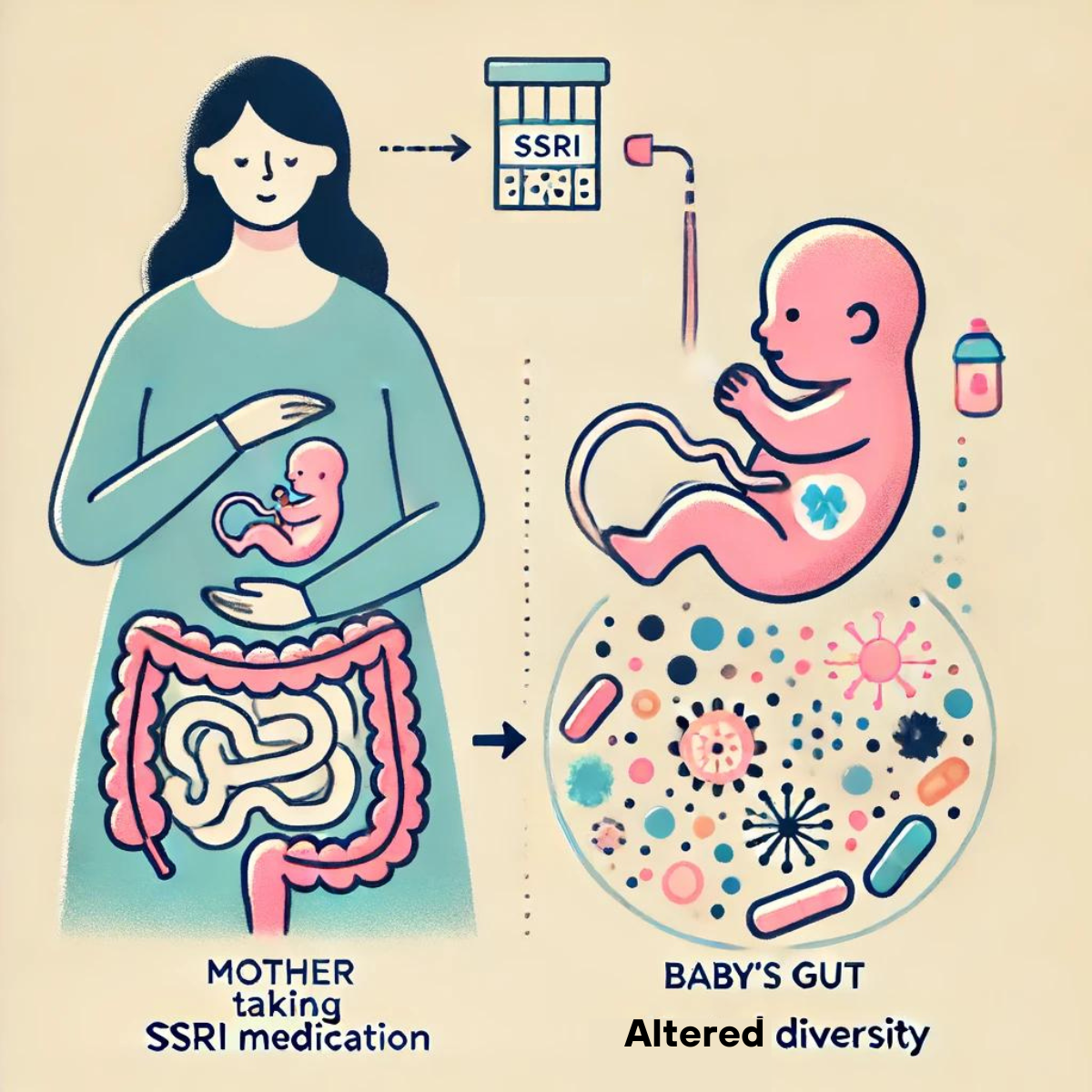Perinatal mental health disorders, which affect up to 20% of pregnant and postpartum women, are a significant complication that imposes enormous costs on the American healthcare system. During this period, approximately 5-13% of moms are treated with Selective Serotonin Reuptake Inhibitor (SSRIs) like fluoxetine. These drugs can pass across the blood-placental and blood-milk barriers, affecting fetal and newborn health. While SSRIs have been shown to alter the maternal gut microbiota, their effects on the offspring’s gut microbiome are uncertain. Given the importance of the gut microbiome in health, this study studies the influence of maternal fluoxetine exposure on the gut microbiome of both mothers and their offspring during pregnancy and lactation.
Key Findings:
- Decreased Alpha Diversity: Maternal fluoxetine exposure was associated with decreased alpha diversity in the gut microbiome of offspring during early life.
- Genera-Specific Differences: Specific changes in the gut microbiome composition were observed, particularly in the genera Turicibacter, Parasutterella, and Romboutsia.
- Turicibacter: Reduced abundance in both mothers and offspring exposed to fluoxetine.
- Parasutterella: Decreased abundance in maternal gut microbiome due to fluoxetine exposure.
- Romboutsia: Lower relative abundance in the offspring of mothers treated with fluoxetine.
- Health Implications: These microbiome alterations suggest potential impacts on local and systemic health, including gastrointestinal issues, disrupted growth patterns, and increased susceptibility to infections in infants.
The findings highlight the importance of investigating these effects in vulnerable populations, such as preterm infants, who are already at high risk for gut microbial dysbiosis and related health problems.
Methods:
The study used maternal and offspring mice to investigate the effects of fluoxetine exposure. Maternal mice were exposed to fluoxetine during pregnancy and lactation (embryonic day 10 to lactation day 21; E10–L21). Stool samples were collected at four different time points: E17, L11, L15, and L21. Gut microbiome composition and diversity were analyzed using 16S rRNA sequencing to assess changes due to fluoxetine exposure.
Link to the study : https://tinyurl.com/ycxtxkc3
